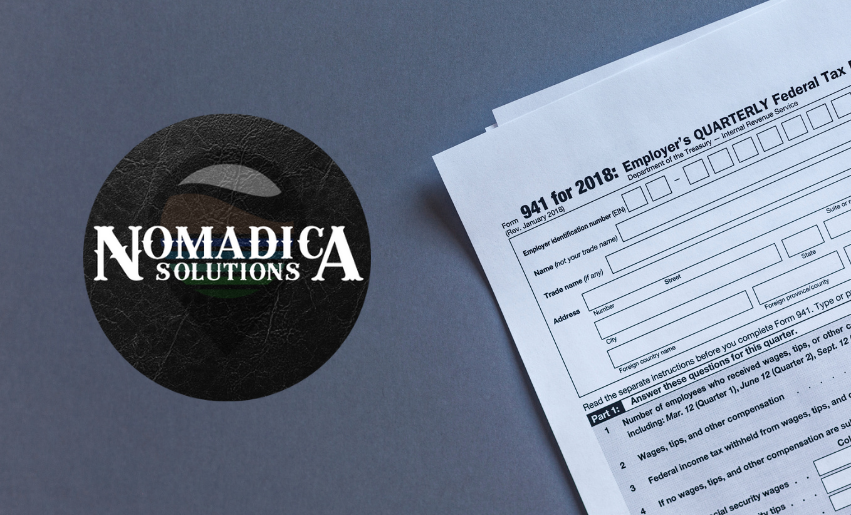Ink and Income: Why Quarterly Taxes Can Make or Break Your Tattoo Business
You didn’t get into tattooing to become a part-time accountant, haha. You got into it because you’re an artist, right? But here’s the cold, hard truth: once you’re running a tattoo business (whether it’s just you and your own brand, or a whole shop), you’re not just the artist… you’re also the boss. And bosses have to deal with the tax man.
If you’re self-employed, and that includes most tattoo artists renting a booth, the IRS expects you to pay quarterly estimated taxes. Not once a year. Not “when you feel like it.” Four times a year, every year. We know… right.
Ignore this, and you’ll be setting yourself up for penalties, interest, and the kind of financial headache that can wipe out a good month’s earnings in a heartbeat. Let’s break it down together.
What Exactly Are Quarterly Taxes?
Quarterly taxes are how self-employed people pre-pay their income and self-employment taxes. Think of it as breaking your annual tax bill into four smaller payments instead of getting slammed with one full amount around April.
For tattoo artists, this means reporting your income, calculating what you owe, and sending it to the IRS every three months:
April 15 (income earned January–March)
June 15 (income earned April–May)
September 15 (income earned June–August)
January 15 of the following year (income earned September–December)
Miss one? The IRS charges you interest for being late even if you “catch up” at the end of the year.
Why This Matters More Than You Might Think
If you’ve ever had a great tattoo season, only to have tax time roll around and swallow up your savings, you already know why this matters. But, let’s break it down anyway for the people in the back…
Quarterly taxes keep you in control.
By paying in chunks, you avoid the giant April surprise. It’s like paying off a sleeve in sessions, way less painful than doing it all at once.
You avoid penalties and interest.
The IRS doesn’t care if you had a slow month or a busy one. If you underpay or miss deadlines, they tack on fees.
It forces you to actually track your income.
And when you’re tracking your income, you can also track your expenses… which means more deductions and less money handed over to the government. Boom.
Common Tattoo Artist Mistakes with Quarterly Taxes
1. Thinking Booth Rent Means You’re Not “Self-Employed.”
Paying booth rent doesn’t make you an employee. If you’re not on payroll with a W-2, you’re still ‘self-employed’. That means you owe both income tax and self-employment tax (which covers Social Security and Medicare).
2. Not Setting Aside Money as You Go.
If you’re not stashing 25–30% of every payment you receive, you’re playing with fire. It’s too easy to spend everything you make, only to be broke when tax time hits.
3. Treating All Income the Same.
Cash tips, Venmo, PayPal, card payments, it all counts. And yes, the IRS expects you to report it.
4. Waiting Until the End of the Year to Figure Out Deductions.
If you’re not tracking booth rent, supplies, conventions, travel, and education as you go, you’re probably missing out on hundreds (if not thousands) of dollars in deductions.
How to Make Quarterly Taxes Less Miserable
Here’s the Nomadica method - no fluff:
Open a Separate Tax Account.
Every time you get paid, drop 25–30% into this account and don’t touch it. This is your tax stash.Track Everything.
Use an app, spreadsheet, or accounting software. Just make sure you log every tattoo, tip, and expense as it happens.Know Your Deductions.
Booth rent, needles, inks, gloves, machine repairs, continuing education, travel to conventions, portfolio printing, marketing costs — all of it can count.Mark the Deadlines.
Put them in your phone, on your shop calendar, tattoo them on your arm if you have to. Missing one is throwing money away.Don’t Be Too Proud To Ask For Help if You Need It.
Quarterly taxes can be tricky, especially if your income changes month to month. We can help you figure out exactly what to pay so you’re not guessing.
The Booth Rent Trap
A lot of artists fall into the booth rent trap. They assume that because they’re paying rent to a shop, the shop is “handling the taxes.” That’s not how it works. Booth rent is a business expense for you, not a payroll deduction.
The shop owner isn’t withholding taxes for you and they’re not going to pay your share. That’s all on you. If you don’t plan for it, the IRS will collect anyway, and they don’t care how good your realism game is.
What Happens If You Don’t Pay Quarterly Taxes?
It’s simple:
Penalties. The IRS charges for underpayment and for being late.
Interest. Even if you pay up later, they’ll add interest on what you owed.
Bigger Bills. You’ll end up owing a massive lump sum at the end of the year, which could wipe out your profit from an entire month — or more.
Bottom Line: Control the Money, Don’t Let It Control You
Quarterly taxes aren’t the enemy. They’re just part of running a legit tattoo business. The more you treat your work like a real business, the more freedom you have to focus on your art.
At Nomadica Solutions, we work with tattoo artists and shop owners to create systems that actually make sense for the way you earn. No boring accountant talk, no judgment. Just strategies to keep you in control of your money so you can keep doing what you do best: creating killer art.
If you’ve been winging it with taxes, now’s the time to change that. Set up a plan, hit your deadlines, and keep the IRS off your back. Your future self and your bank account will thank you.


